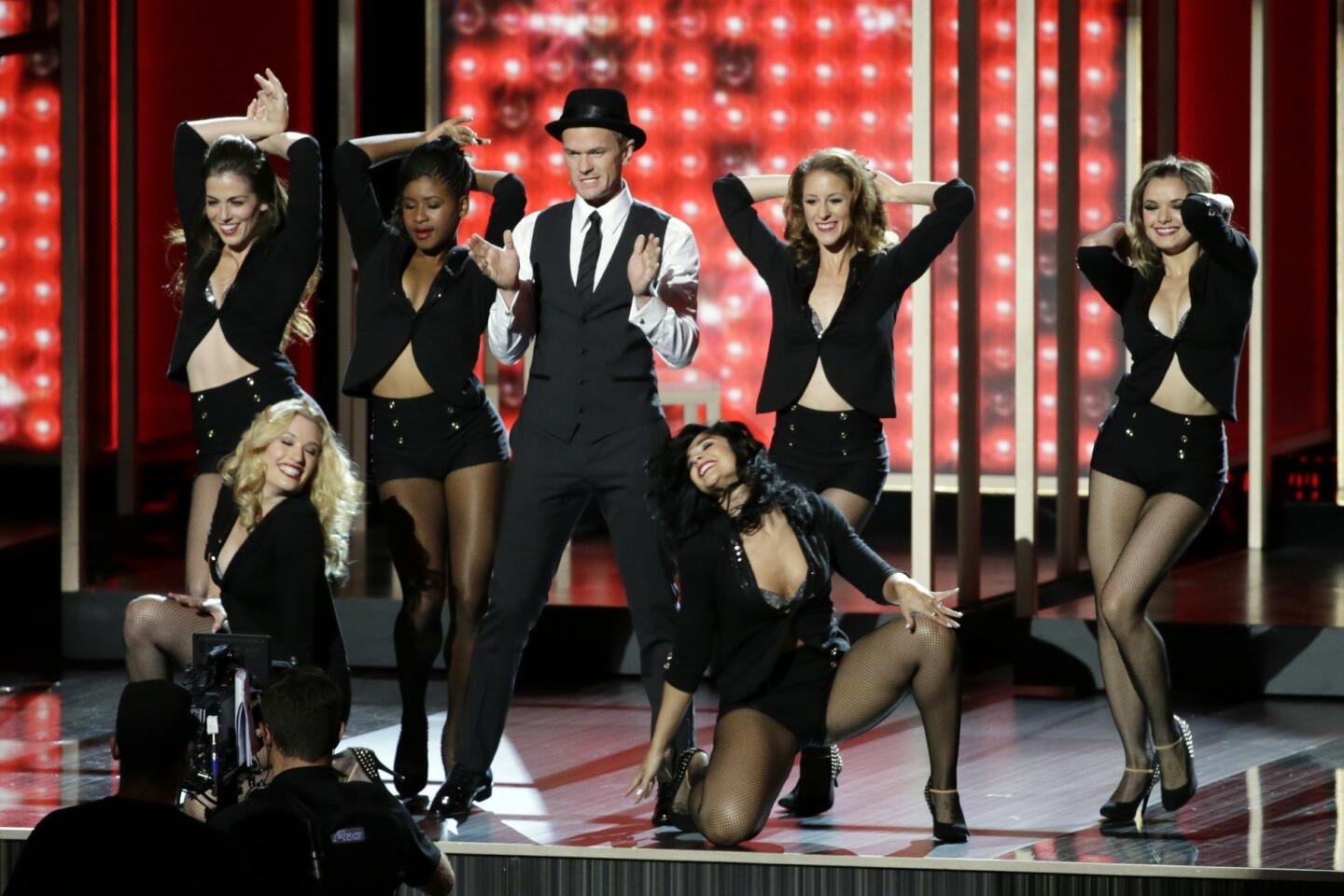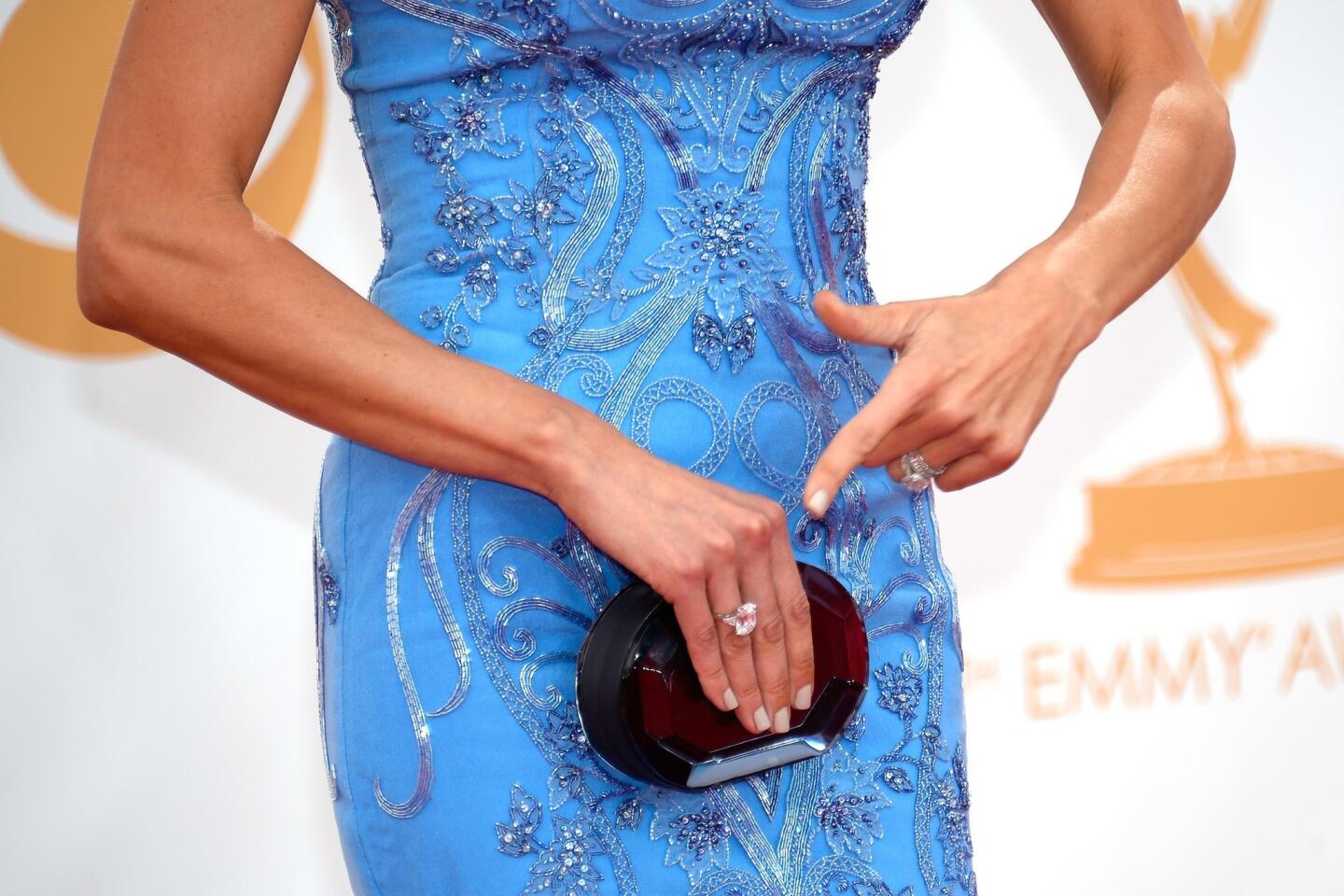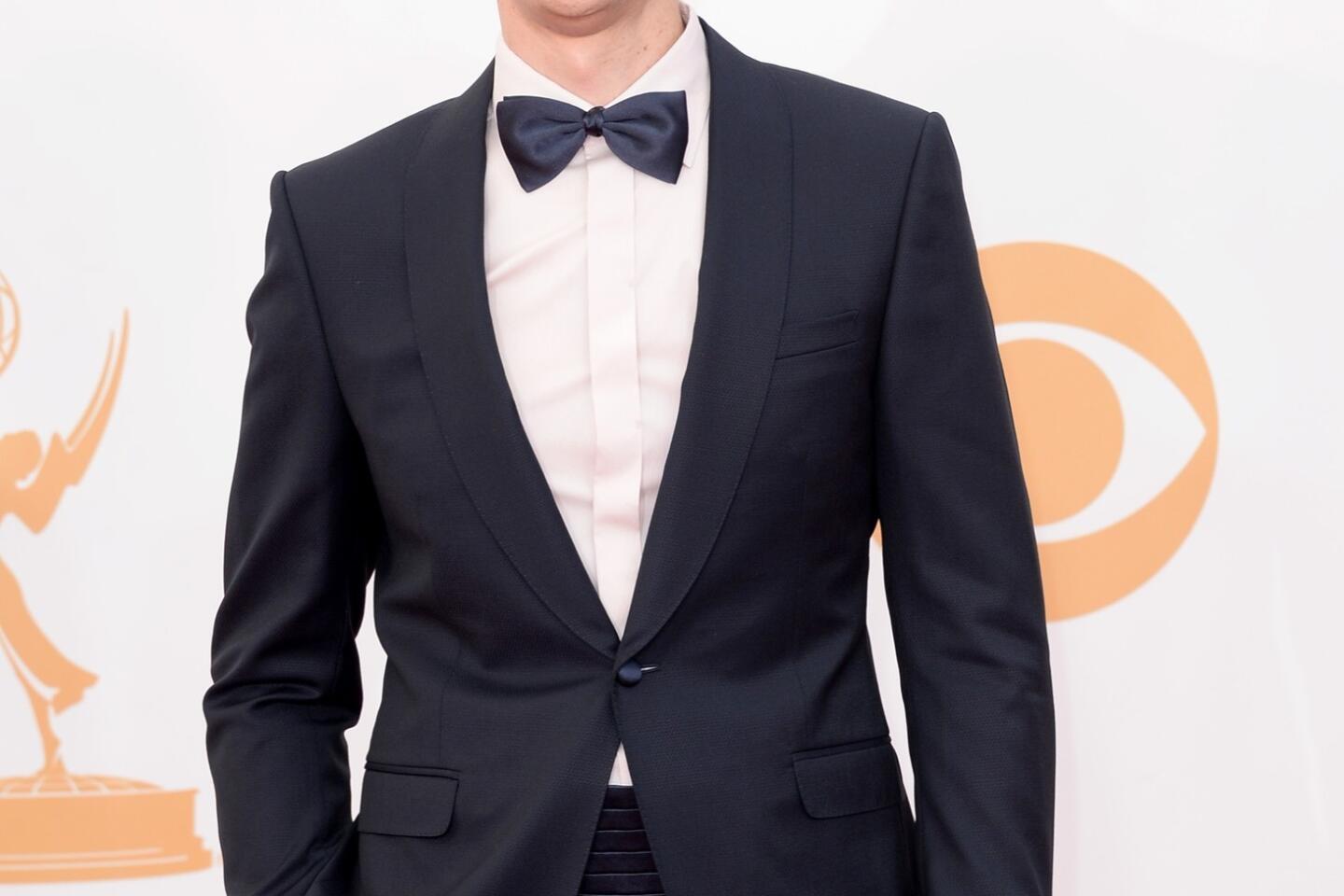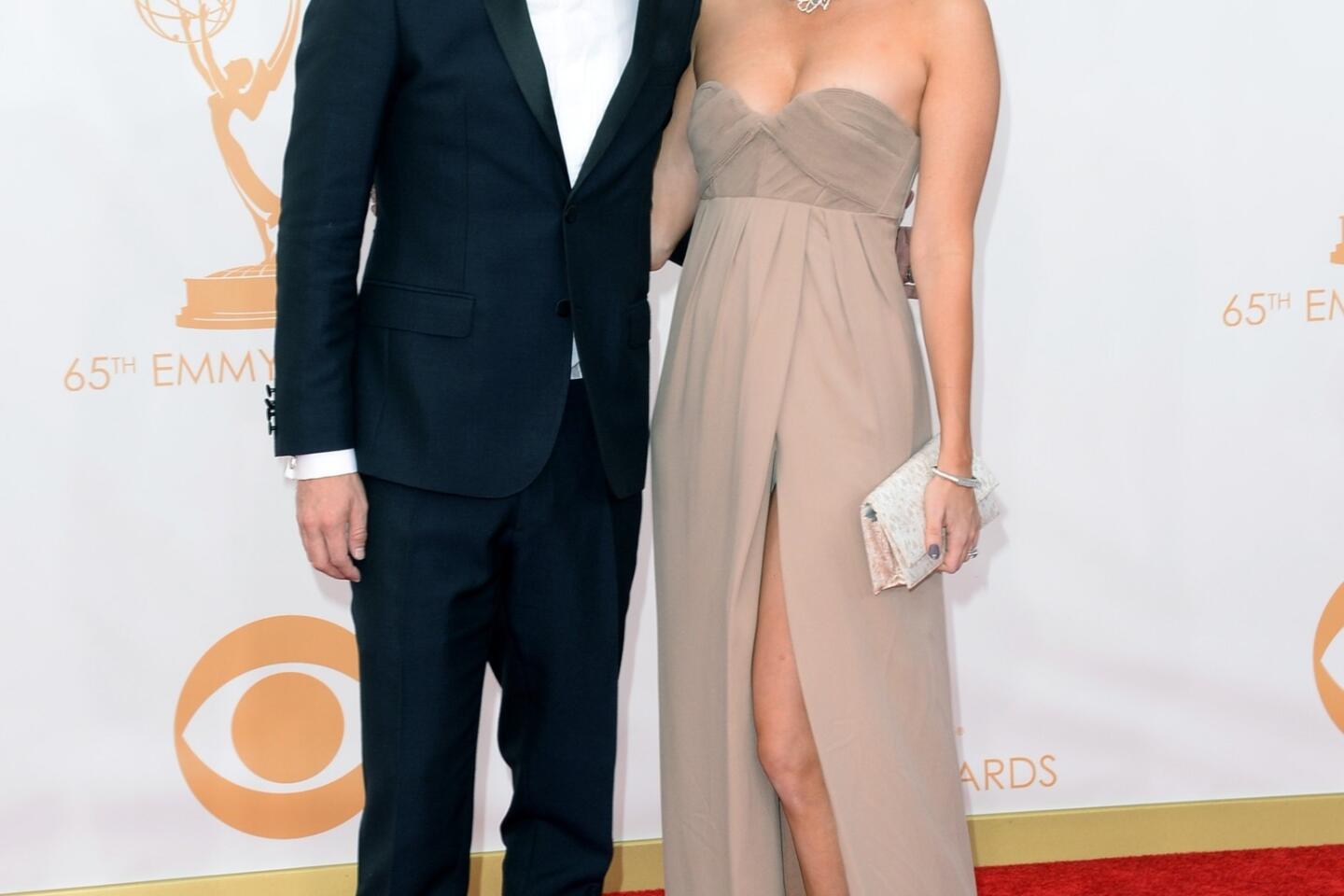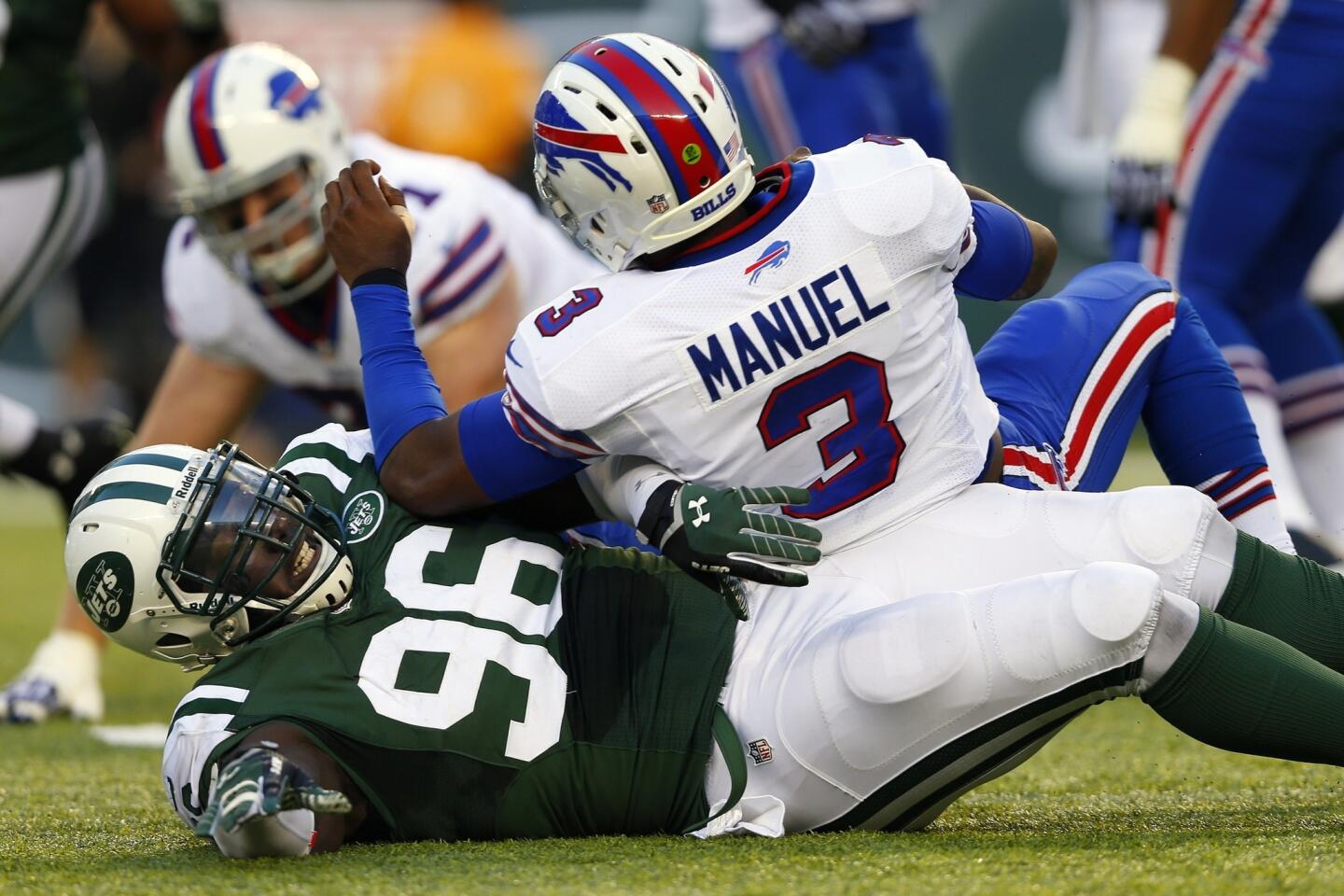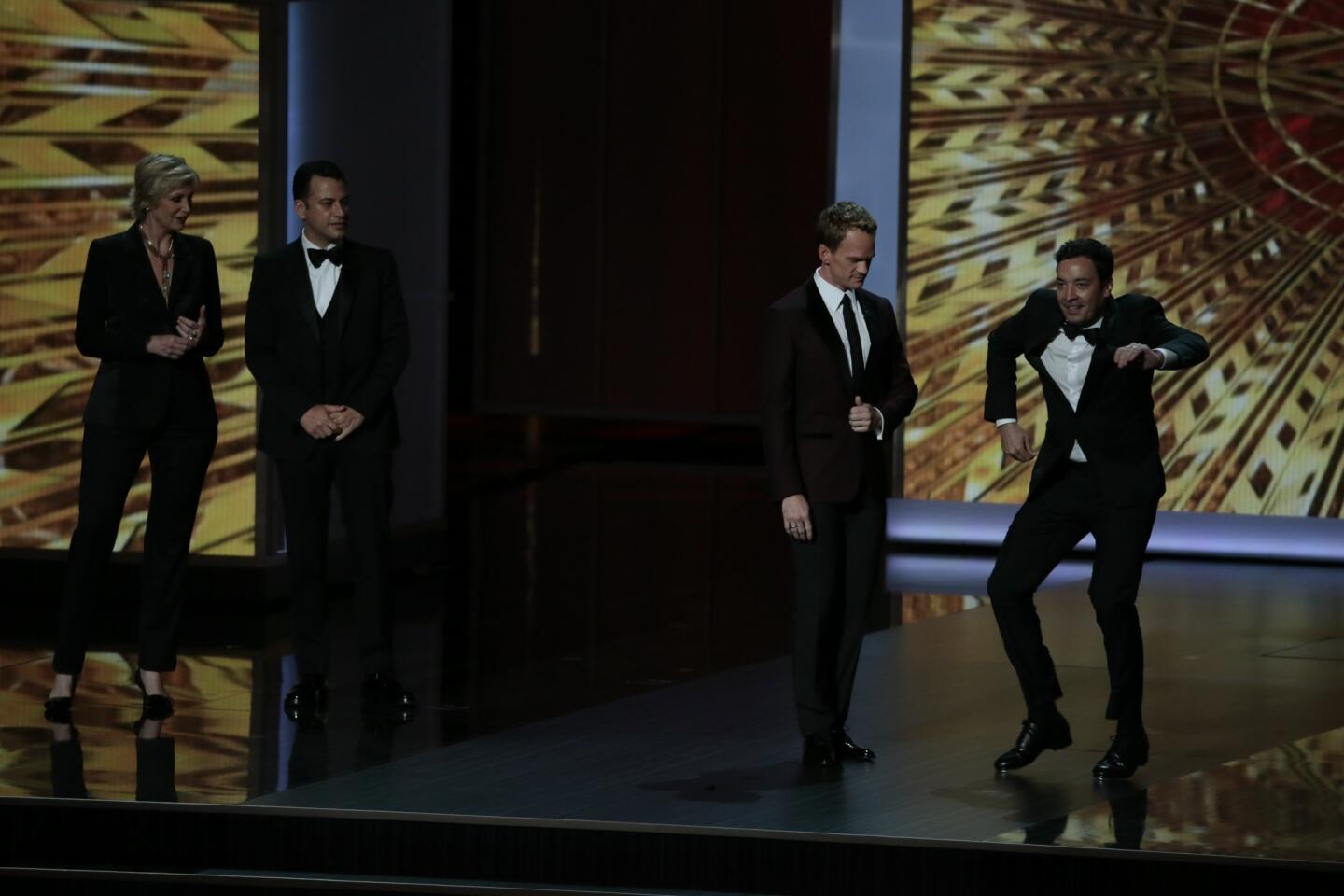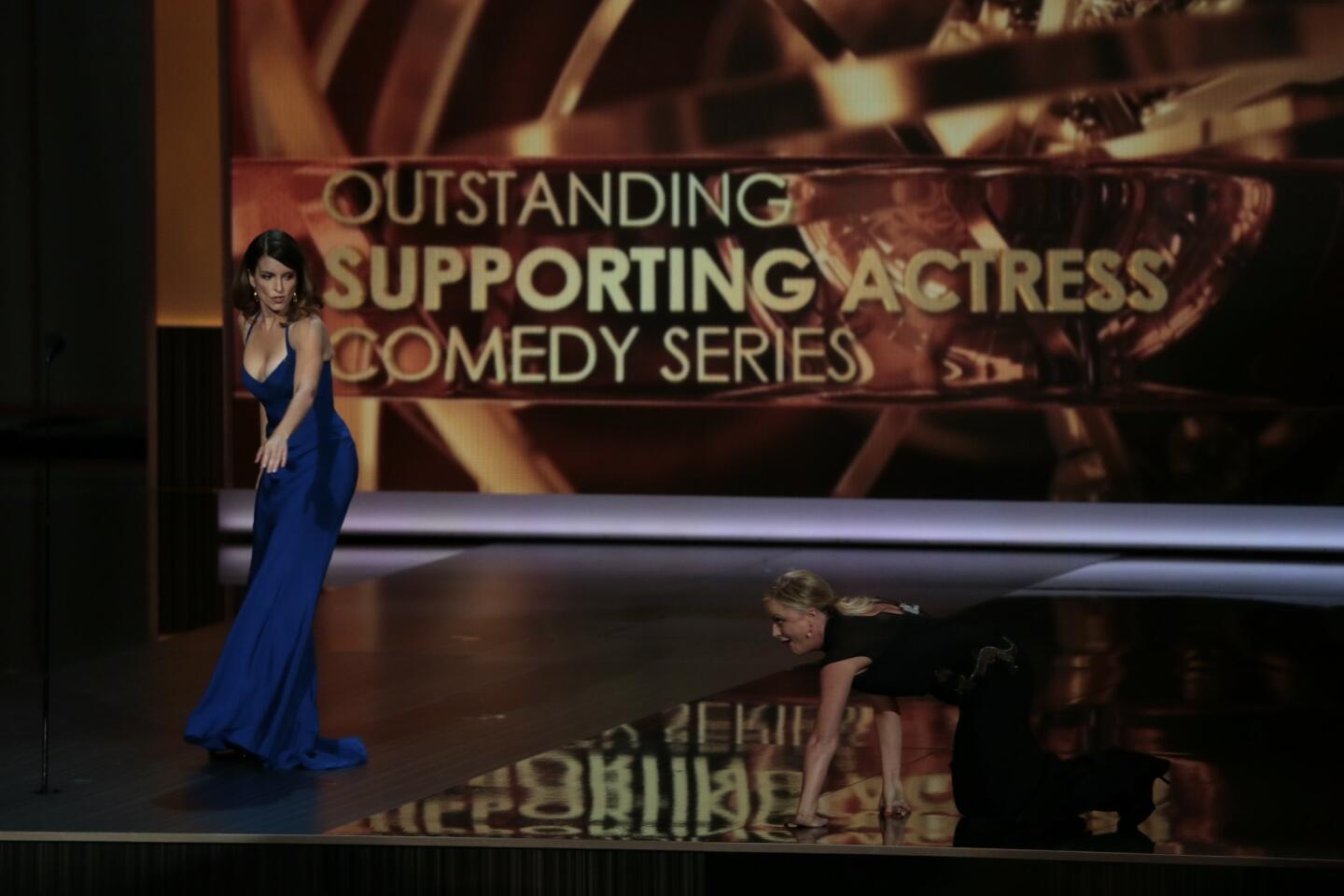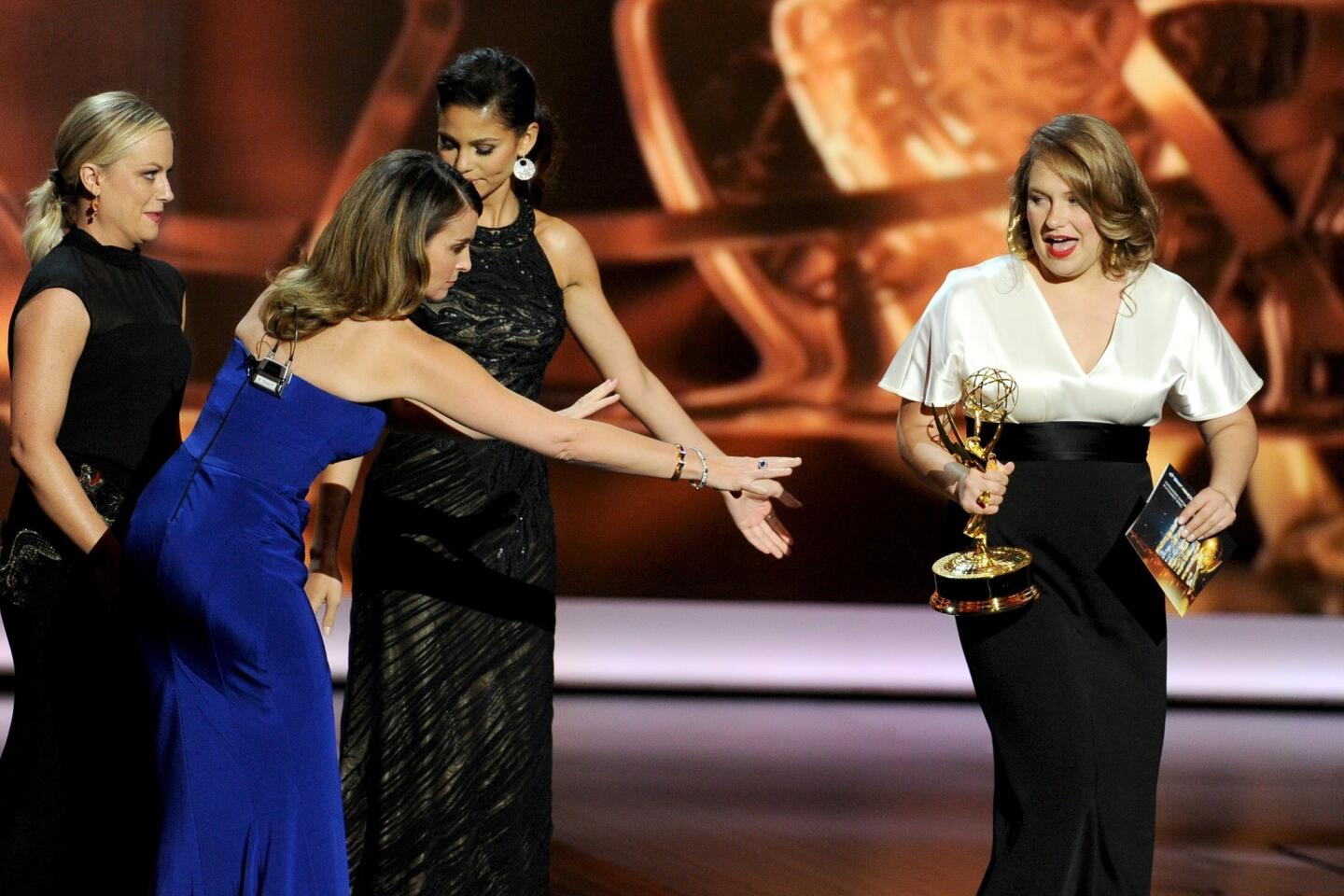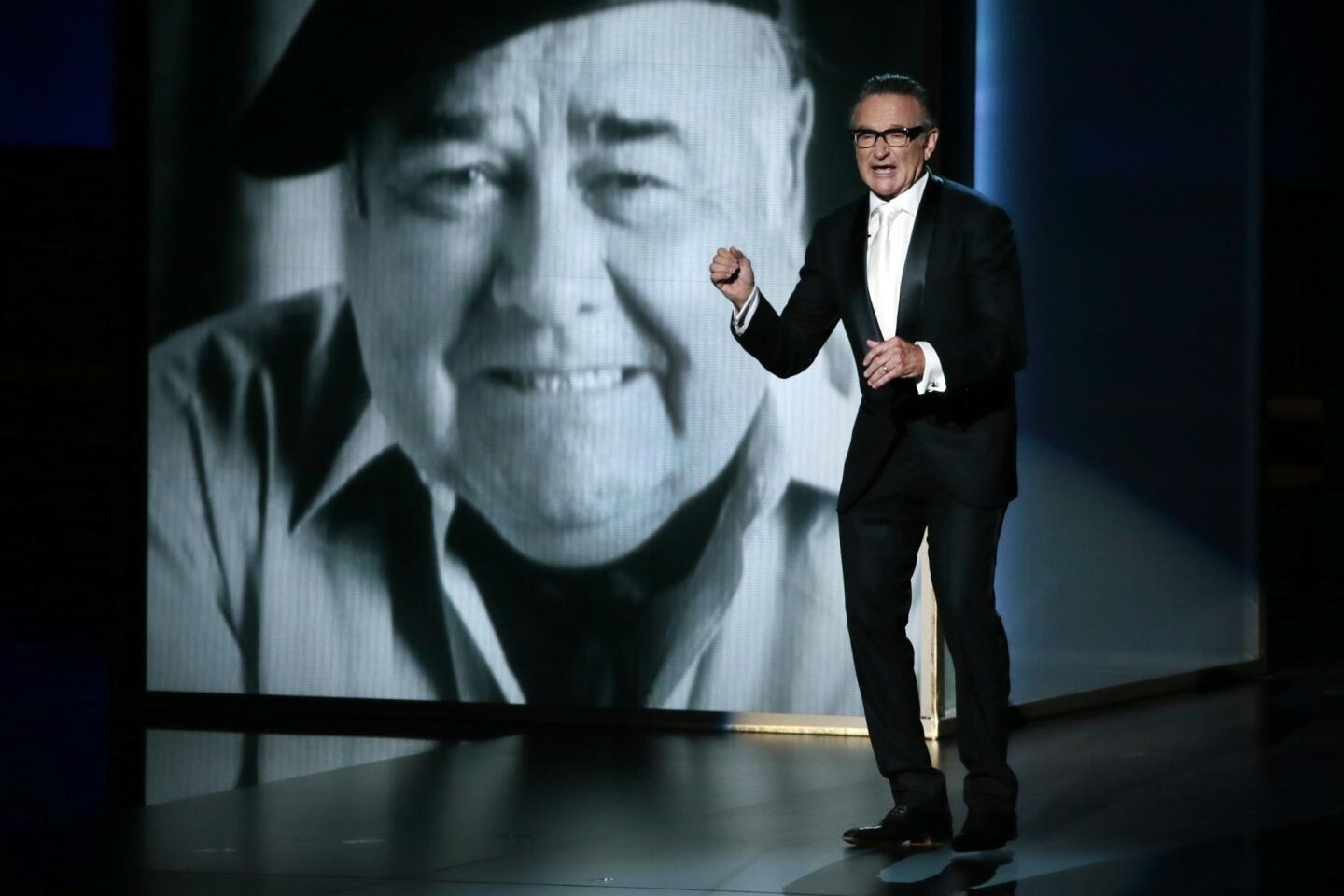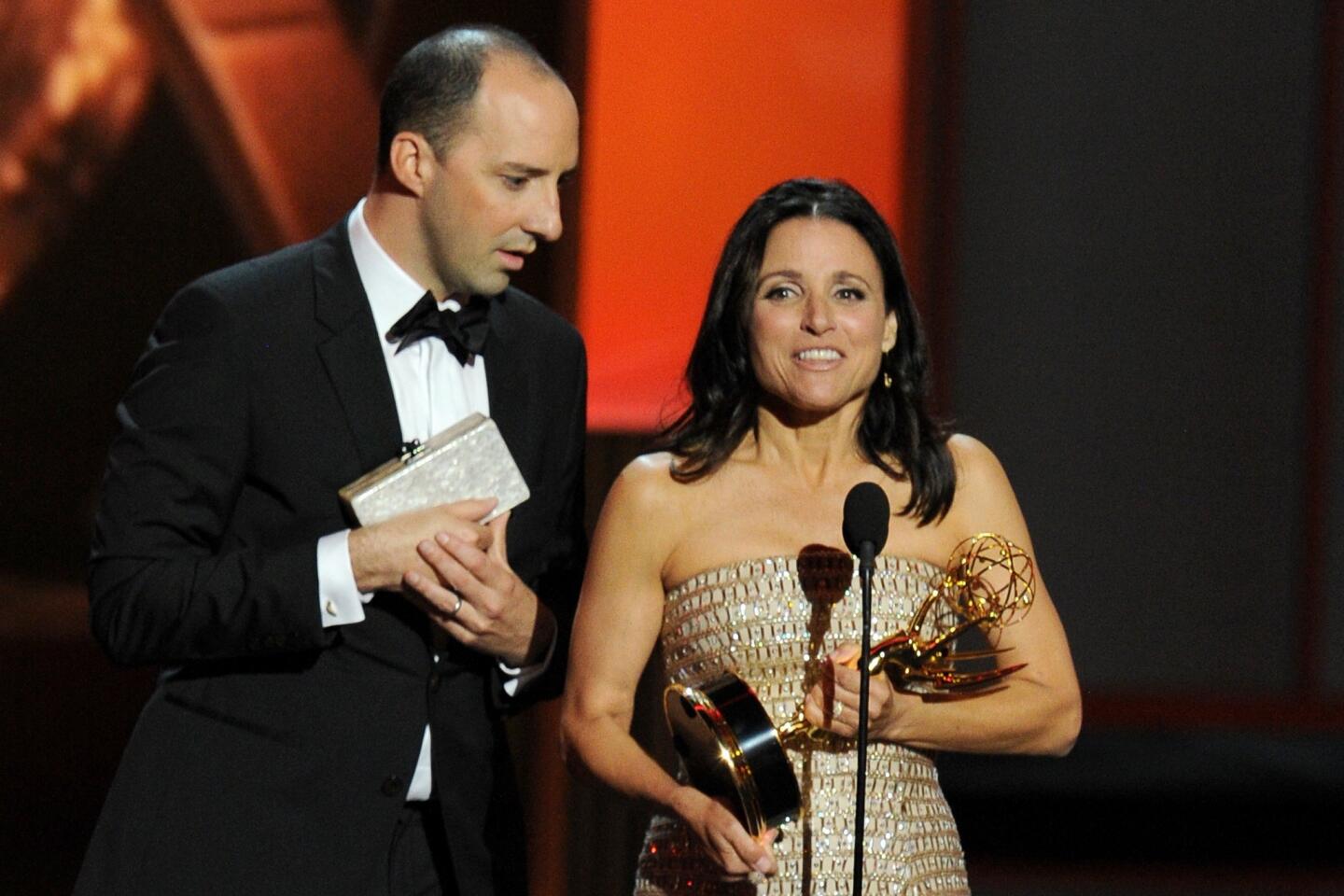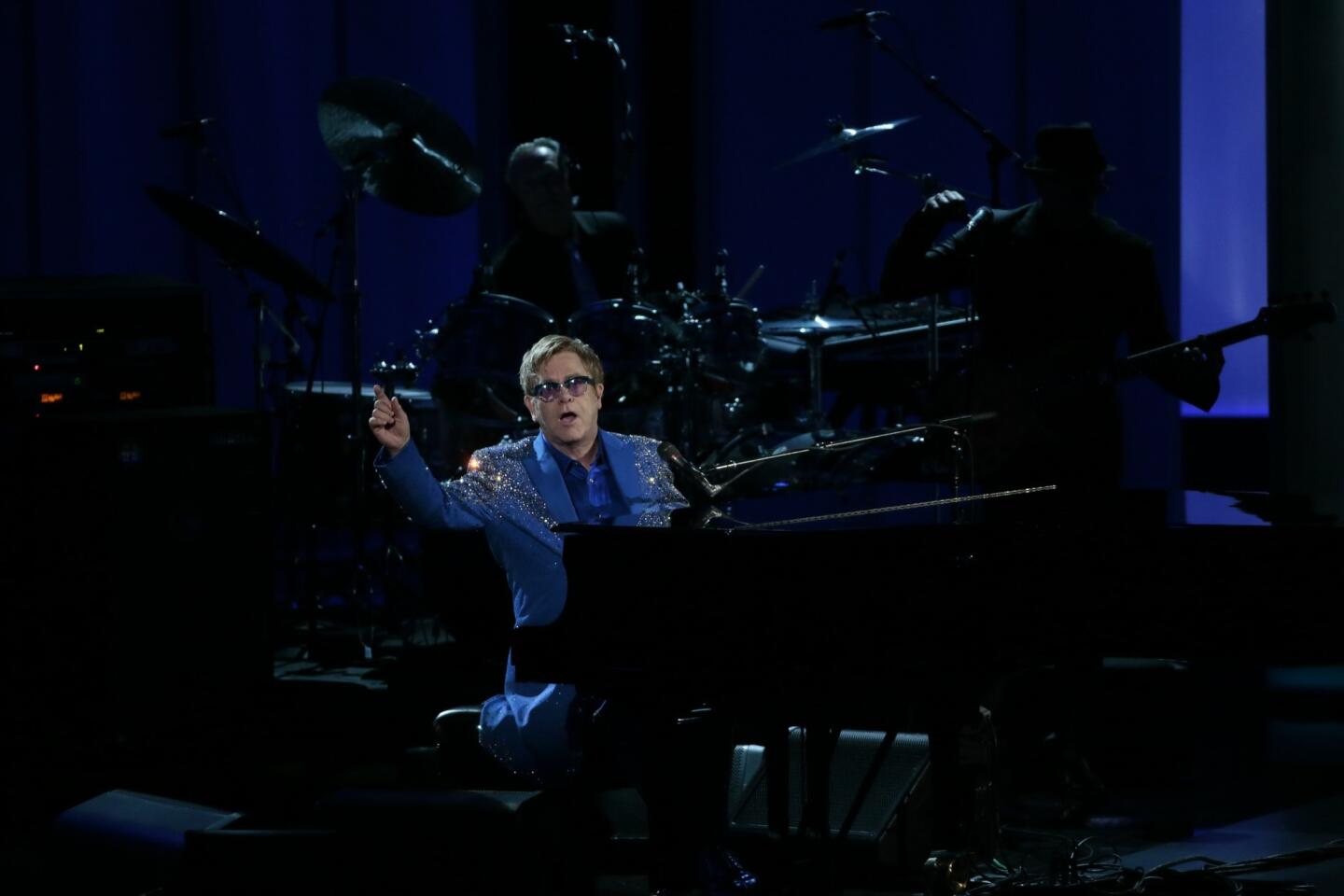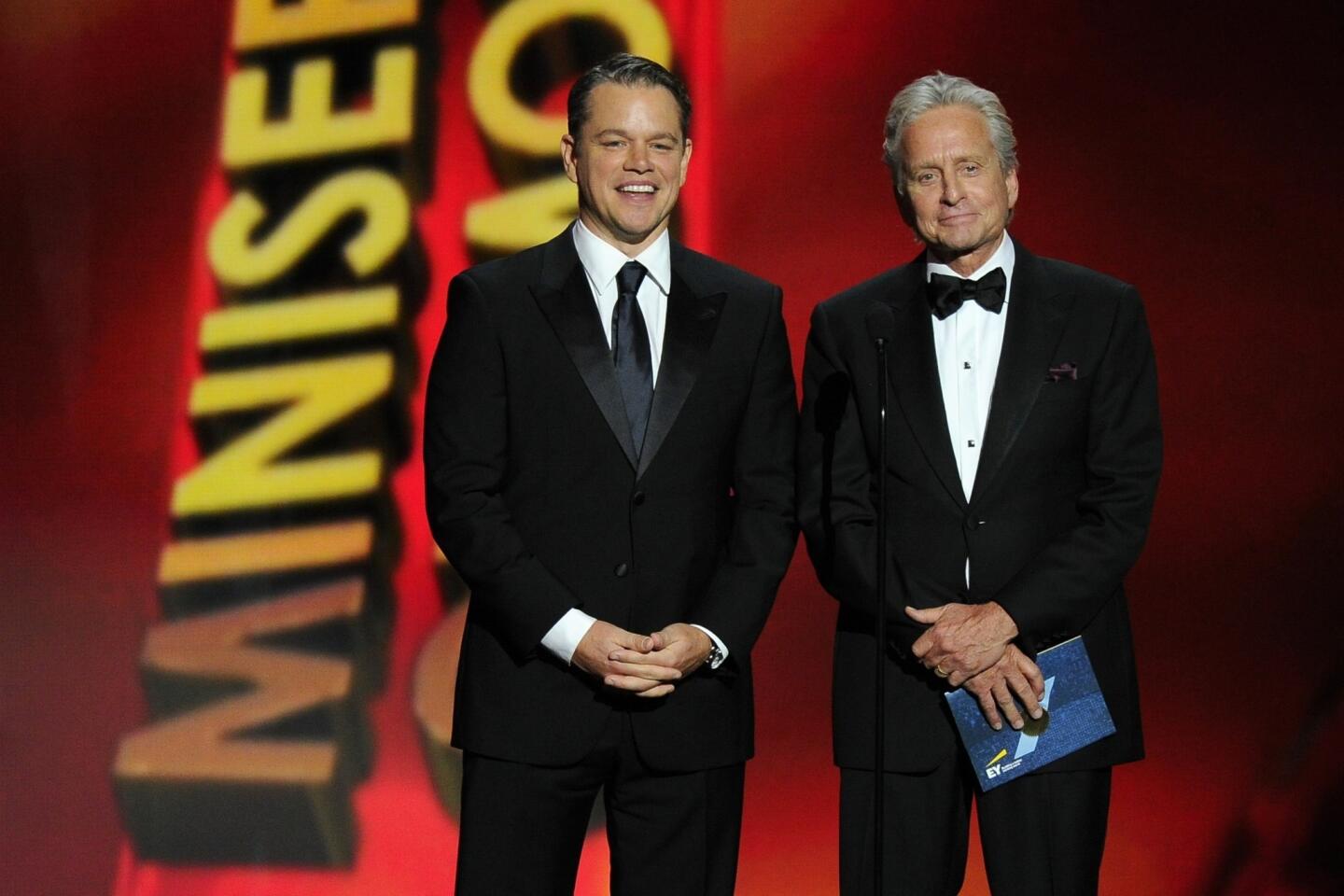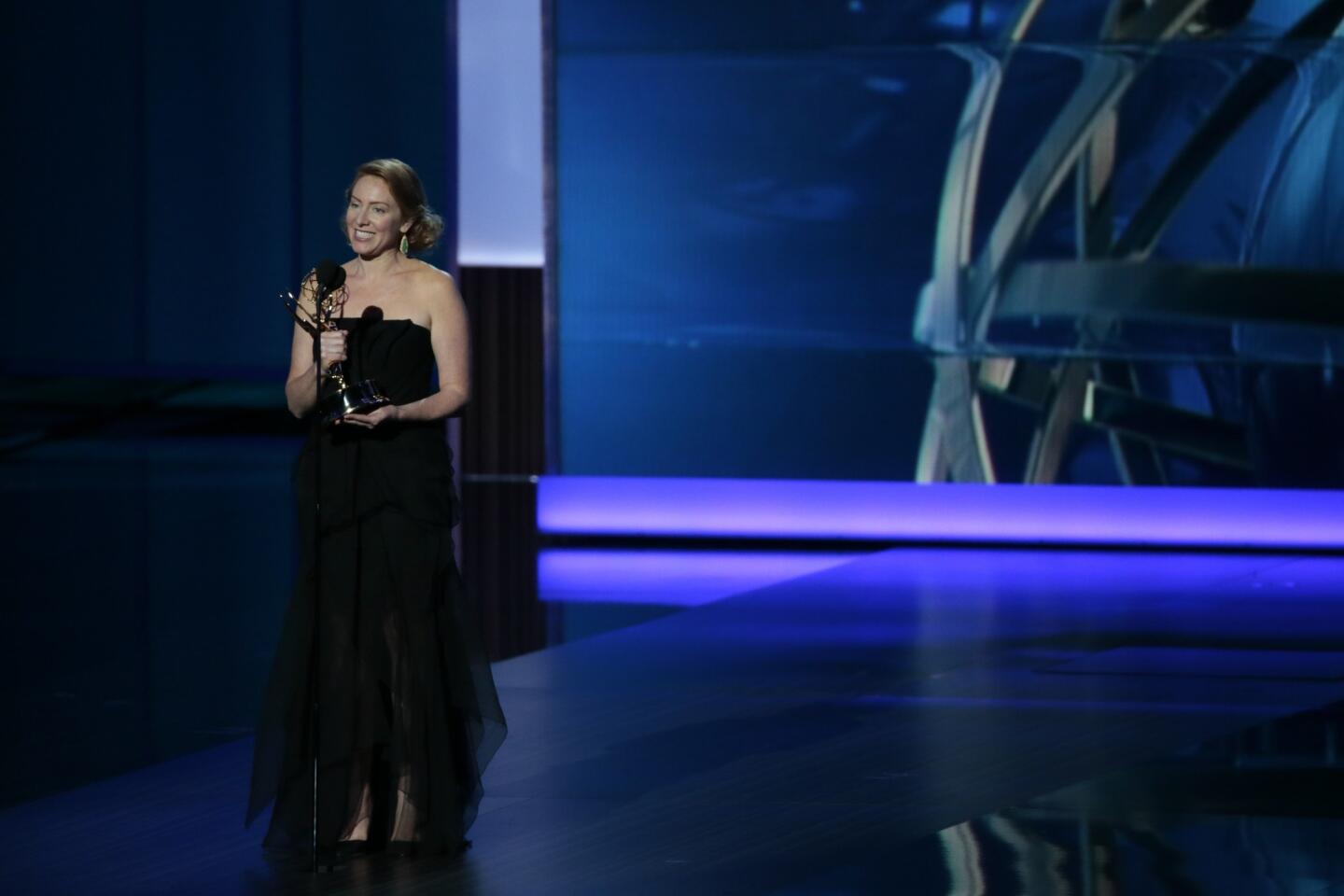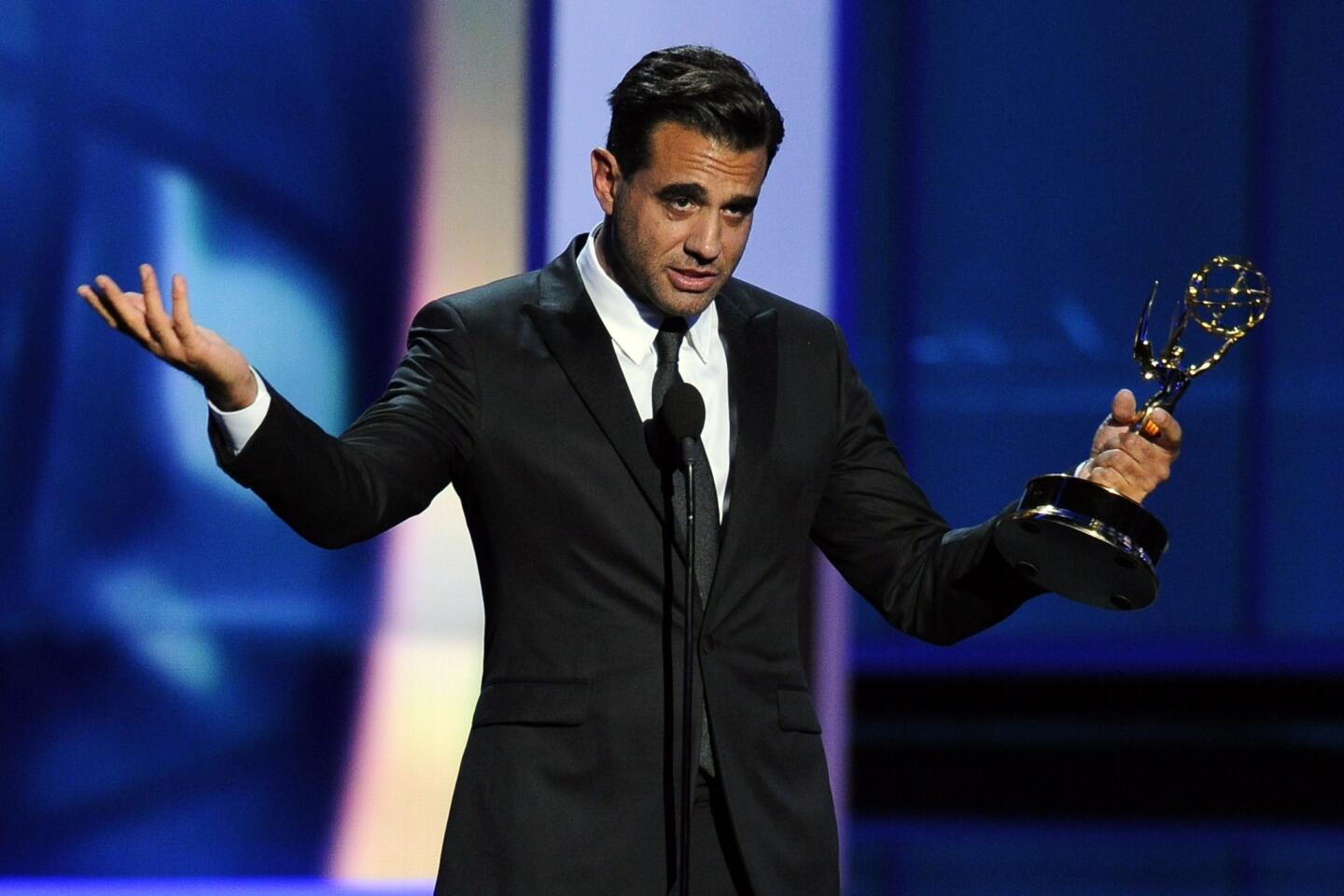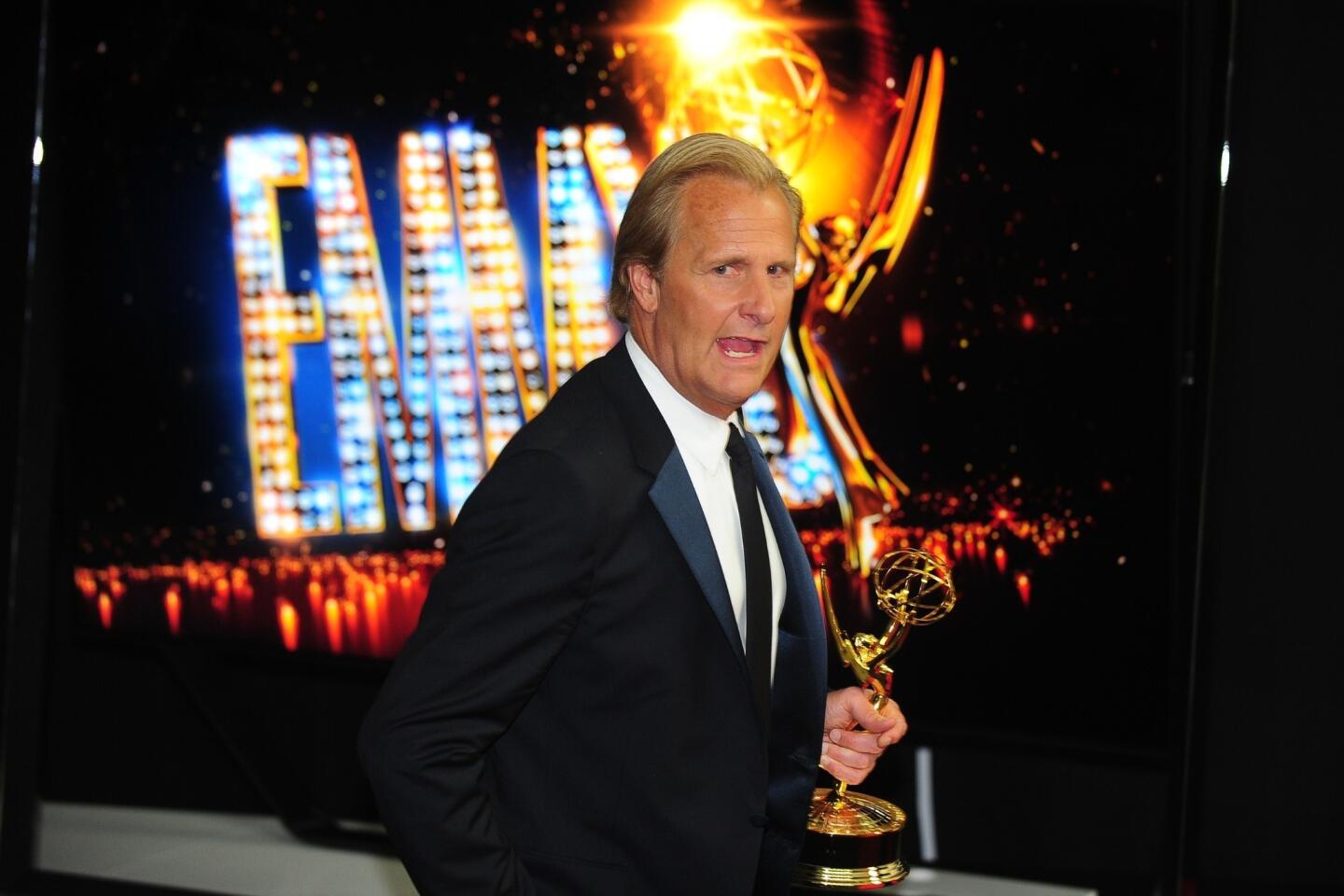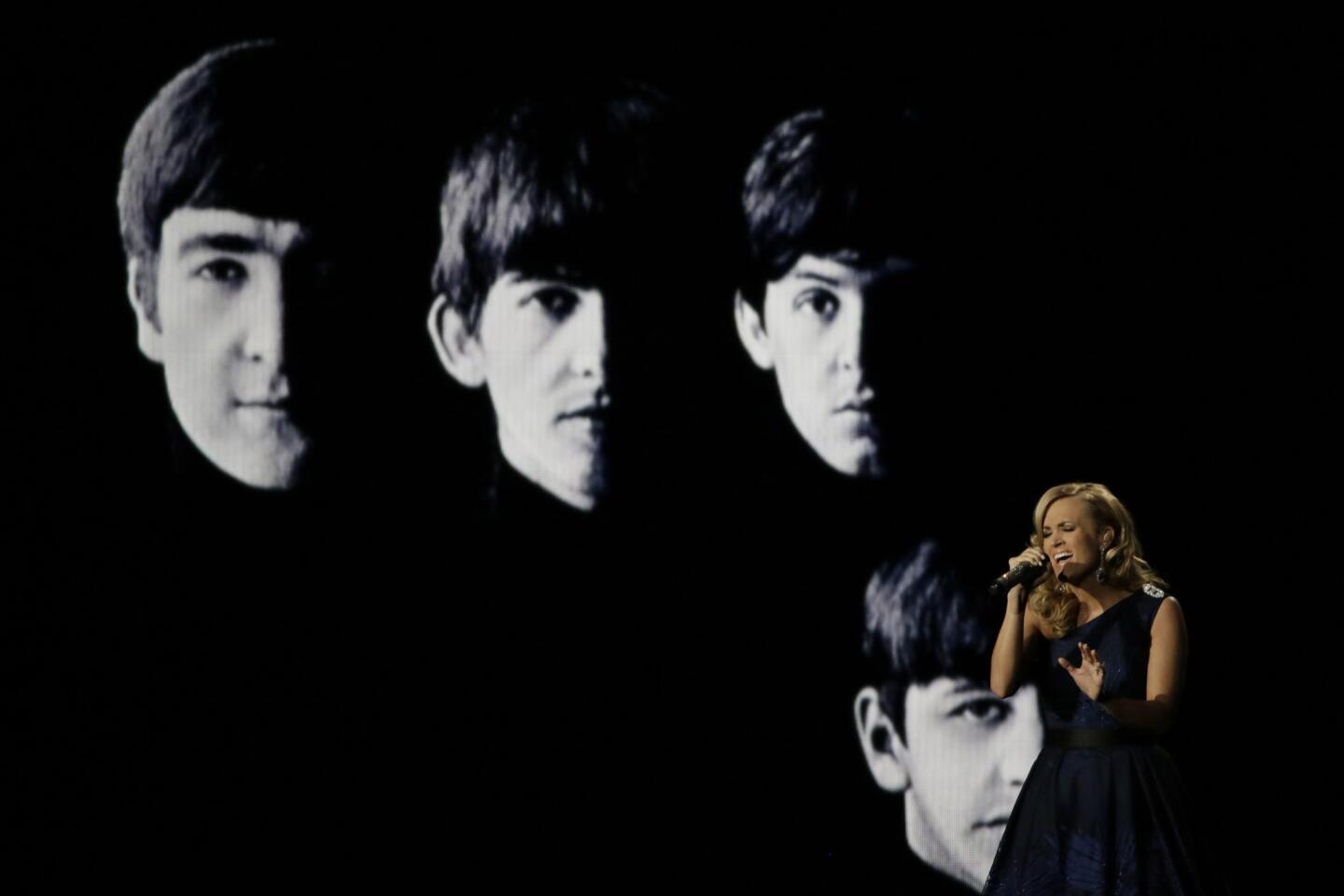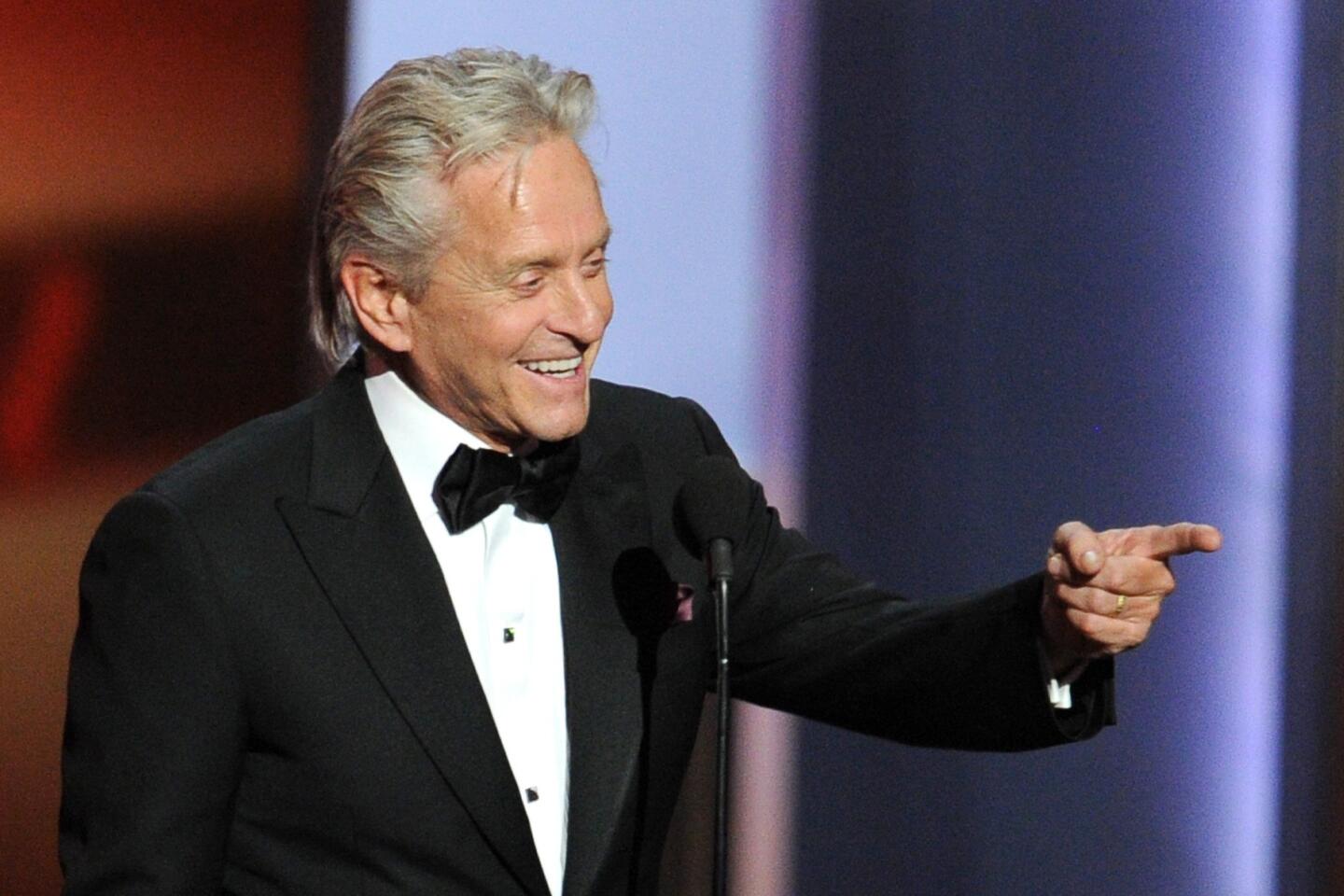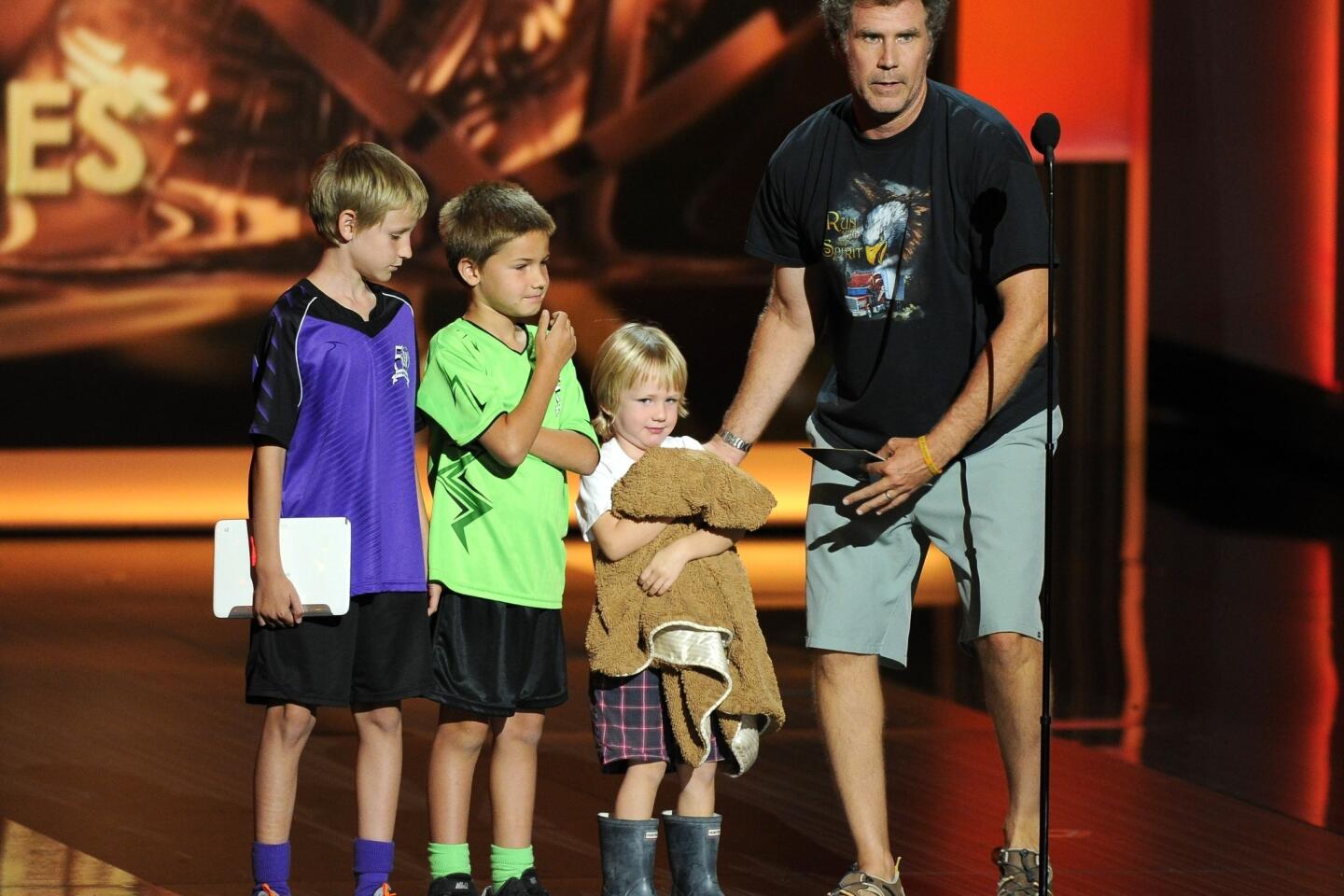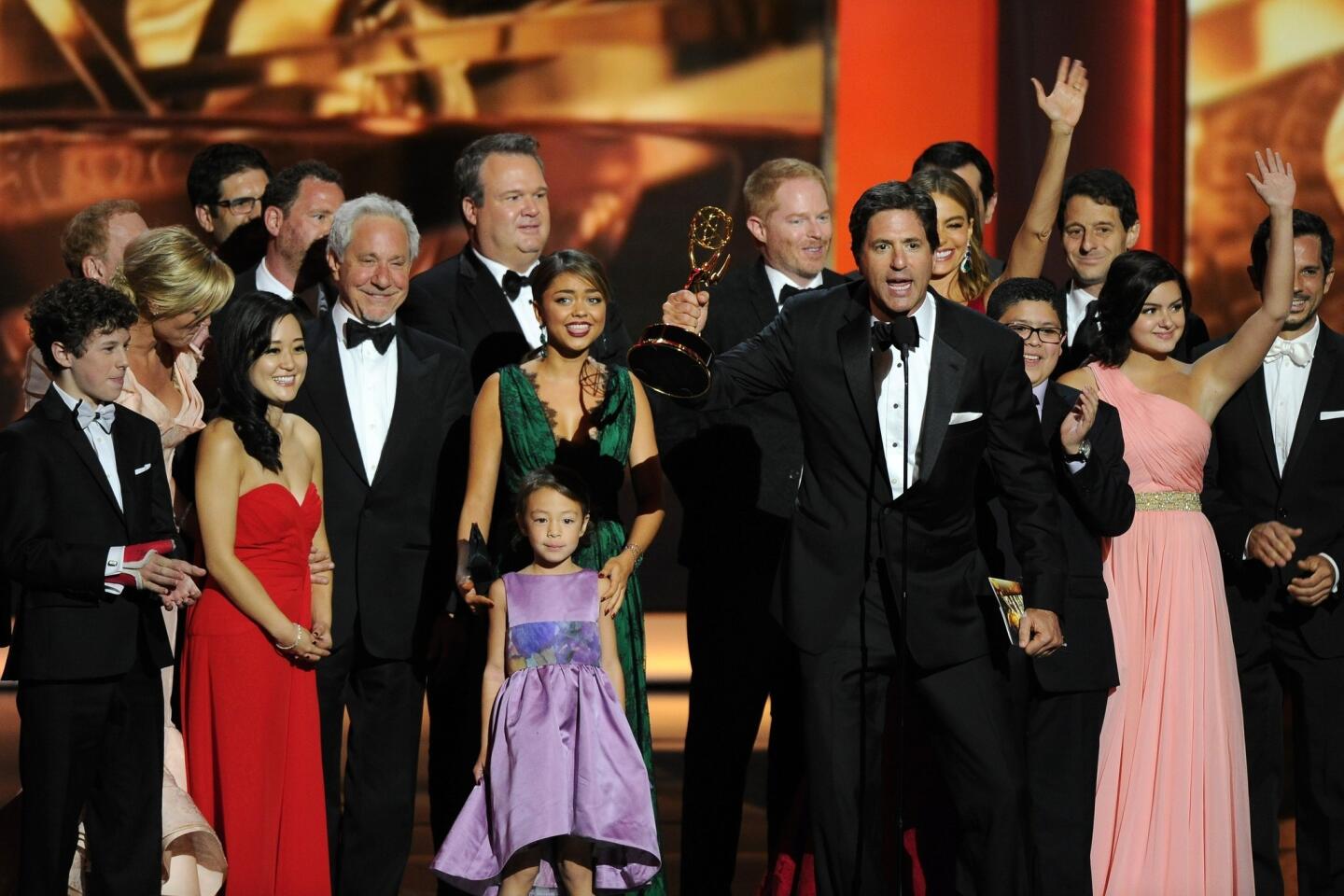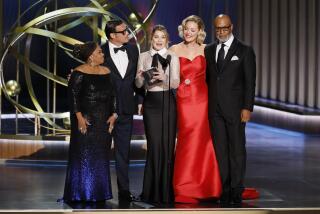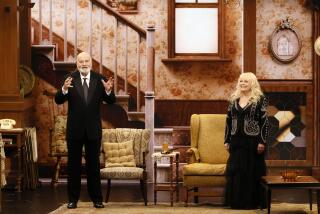Emmys 2013: Special ‘In Memoriam’ just another Emmy choice
The days before Sunday’s broadcast of the 65th Primetime Emmy Awards were filled with dissension. Not just the usual palaver over who should win and who would win, but also over a departure from the customary “In Memoriam” segment and a question of who had been singled out for special tribute — “special superstar tribute,” as it was described in the opening teaser — and who had not.
Who was in: James Gandolfini, memorialized by Edie Falco; Jonathan Winters, by Robin Williams; Jean Stapleton, by Rob Reiner; Cory Monteith, by Jane Lynch; and writer-producer Gary David Goldberg, by Michael J. Fox.
That this seemed to elevate these deceased above others was taken by some commentators as problematic after a year that also saw the deaths of Larry Hagman and Jack Klugman. (Those were the names raised in the press — but there were other TV luminaries, including Dennis Farina, Annette Funicello, Bonnie Franklin, Julie Harris and Andy Williams.)
Emmys 2013: Full coverage: Best & worst Emmy moments | Red carpet video | Quotes from the stars | Top winners & nominees | Show highlights
As to “Glee” star Monteith, who died in July at age 31 from heroin and alcohol poisoning, his inclusion was questioned by Adam Klugman, Jack Klugman’s son, in an interview with this paper: “They’re celebrating this self-inflicted tragedy instead of celebrating the life of my father, who won three Emmys,” he said.
And yet for some in the audience, his would have been the meaningful loss. Possibly, Monteith would have had Johnny Depp’s career, possibly Luke Perry’s; we can’t know. Jack Klugman was in his late 40s when “The Odd Couple” premiered; and in his mid-50s when “Quincy” began. Larry Hagman was 47 when he created the role of J.R. Ewing.
Still, Adam Klugman was not wrong when he said, “They’re doing this because they think they’re gonna get a younger generation of viewers to watch.”
The Emmy broadcast is made up of many such choices — who hosts, who presents, what packages and production numbers to include, all arguable. Nor do the awards themselves represent any absolute measure of quality: Deserving people win them, but other deserving people do not. That those decisions are made by a large body does give them a kind of statistical weight, but they are also open to unresolvable dispute.
More Emmys: Red carpet | Play-at-home ballot | Timeline | L.A. Times photo booth | Emmys presenters
The decision to break out these tributes, with “superstars” honoring the selected departed — the selections seemed categorical (middle-aged actor, young actor, woman, comic, writer) — was no different, really, than the choice to include an appearance by Elton John, justified only by the fact that a movie about Liberace, with whom he shares an instrument and a certain sartorial extravagance, was nominated for a lot of awards this year. And that he is Elton John. It was made for the sake of television.
Spread out through the evening, each tribute featured a speaker standing before a picture or pictures of the departed; some were visibly moved, some were relaxed, some less so. Of Monteith, Lynch said, “From the first time you saw Cory, he had a star quality and a genuine sweetness that made it impossible not to fall in love with him ... and millions did.” She added a cautionary note about the destructiveness of drugs.
The more inclusive group memorial, when it came, did seem rushed by comparison. (It seemed rushed, as well, by comparison with some previous memorial segments — perhaps it was sped up for time.) The applause for Hagman and for Klugman was particularly loud, perhaps to make a point. But they are all gone now and, in that, equal.
More to Read
From the Oscars to the Emmys.
Get the Envelope newsletter for exclusive awards season coverage, behind-the-scenes stories from the Envelope podcast and columnist Glenn Whipp’s must-read analysis.
You may occasionally receive promotional content from the Los Angeles Times.
